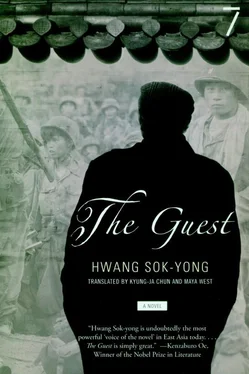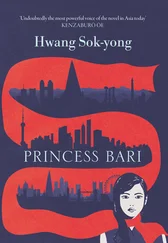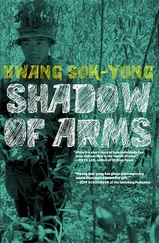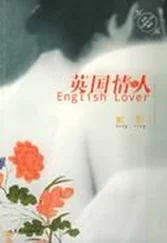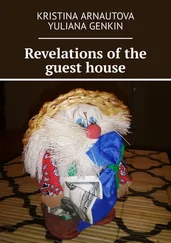Pongsu responded to my frantic question by laughing out loud.
What do you mean “get me”? Haven’t you heard the talk? We turned Pyongyang inside out!
We heard there were bombs going off all over the place.
You heard right. We got quite a lot of help from the South — they sent friends. I’m actually on my way down to South Korea right now — I’ll be crossing the thirty-eighth parallel. Anyway, that’s part of the reason I asked to see you — we need the Christian Youth to organize, underground. We’ll be sending up some more men.
It’ll be quieting down soon. When it does, the men we already have in Sinch’ŏn, Chaeryŏng, and Ŭnnyul alone will make quite a force, Sangho said.
Once again, Pongsu laughed.
You kids still have no idea what’s gong on out there in the real world, do you? No way is it ever going to quiet down. They’ve just declared that they’re going to start enforcing this land reform business. North Korea is like a beehive someone poked with a stick. Anyone who lived well under Japanese rule, anyone who had land — anyone at all — is now being considered a reactionary.
Pongsu glanced at his watch and got to his feet, hoisting the knapsack onto his back.
Got to go. Don’t forget what I said. When the men come up from the South, they’ll be sent to you.
Suddenly, in the darkness outside the funeral house, a sharp whistle cut through the air. Pongsu hurriedly blew the candle out and climbed down. Following him, we spotted two men waiting at the bottom of the hill. Pongsu ran down before us and exchanged a few words with them. He introduced us:
These men are our fellow soldiers from the South. Say hello.
Sangho and I shook hands with the two men, but it was impossible to make out their faces in the dark. The one shaking my hand spoke.
I’m from Hwanghae Province, too.
Pongsu and the two young men disappeared into the darkness. As dawn broke over the hills, Sangho and I boldly went down into the village, strutting along with a derring-do kind of bravado. Nothing seemed to be out of the ordinary. At the mouth of the village we ran into a neighbor, taking his cow to pasture as usual. When we bowed to him, he spoke first.
Your father, he’s back home now, isn’t he?
Has he been away?
Oh, I guess you didn’t know — he was taken to town, to the police station.
That’s when Sangho and I finally grasped that something awful must have happened in the village while we were away. The first person I saw when I got to our front yard was Mother at the well.
Mother, has something happened to us, to our family?
Oh Lord, something, something indeed.
She grabbed hold of me and her eyes began to well up.
Where’s Father gone to?
The neighbors just went and carried him back from town.
In accordance with the Land Reform Order, issued nationwide on March 5, our father had officially become a personage who merited “close surveillance.” At the Farmers’ Rally, held three days later on March 8 in Sinch’ŏn, he was identified as a reactionary. There were about a dozen big landowners in Namuribŏl, Chaeryŏng, and our area, Ŏruribŏl, but most of them had fled South after the formation of the thirty-eighth parallel. Those who remained owned about ten thousand p’yŏng 30each, including rice paddies, fields, and orchards. When the Land Reform Order was first issued, only those who possessed more than fifteen thousand p’yŏng 31were to have their land confiscated, but very little time passed before the order was broadened to include any and all land tilled by tenant farmers. The land that had been left behind by the Japanese was, of course, the property of the state, and any land in a given village tainted by the slightest trace of Japanese collaboration was also unconditionally confiscated. Among the old-time landowners who had chosen to stay, hoping to weather the storm, those with over fifteen thousand p’yŏng were branded as reactionaries and banished to a distance of one hundred ri 32from their former homes. While confiscating land that had belonged to landlords and distributing it to tenants might have seemed logical, confiscating the land of one independent farmer to give to another independent farmer in the name of fair distribution ended up turning the entire population into tenants of the state. “Blind confiscation” and “blind distribution,” they called it, but the twelve thousand p’yŏng of rice paddies that had once belonged to our family was cut down to five thousand overnight. Seven thousand had been farmed by tenants, they declared, and besides, they were unhappy with the fact that Father had worked as a clerk for the Oriental Development Company. At least at that point they couldn’t yet openly persecute him for being a presbyter at the church — compared to what they did to Sangho’s family, we were getting off easy. They hung a sign that read “Wicked Landowner” around Sangho’s father’s neck and dragged him around town. Then they tried him before a kangaroo court and locked him up. Their excuse was that he had been uncooperative about following the Land Reform Order. Our father had agreed to limit his claims to the land the government parceled out to us and obediently stamped his tojang on the document. He was released. When I entered the room, Father was lying on the floor, huddled under a blanket. His hair looked like a magpie nest, and the rims of his eyes were bruised to a dark blue. His lips, too, were cracked and black.
Father, who’s done this to you? Who hurt you?
Father just pulled up the blanket and closed his eyes.
Ah, you were someplace safe. Pray, I say, and sing a hymn.
I wasn’t exactly in the mood to gather my hands together for a prayer, but father’s request was so subdued that I ended up doing exactly that, together with Mother.
Almighty God, give me the courage to fight fearlessly against distress and persecution. No matter how fiercely the hordes of Satan come down upon us, help me at least to die as a martyr of our Lord. God teaches us that those who are persecuted and wronged for His sake should rejoice, for they will be rewarded in Heaven. We know that some of us suffer already — not just from jeers and whippings — some of us have been bound and thrown into jail, some us have been stoned, knifed, and sawed to death while still others were forced to crawl, clothed in sheepskin and goatskin, starved and mistreated. Oh, if we live, help us to live for Thee, Our Lord, and if we die, help us to die for Thee, our Lord.
Finished with the prayer, I sang the hymn “The Way My Savior Leads Me” two times in a row. Later, our mother gave me the details of what happened. I found out that Illang had been in charge. I also learned the names of all the men who had taken Illang’s orders. Most of them were former tenants of ours, but some had been tenants for Sangho’s or Pongsu’s families. There were about fifty households in our village at the time — the entire population, including the womenfolk, numbered around two hundred. Out of this two hundred, the total number of official Party members back then was, at most, around five or so. The fact that Illang was appointed chairman of the local Farm Village Committeeand put in charge of the land distribution was ridiculous enough to make the cows laugh. We didn’t even find out what that good-for-nothing’s surname actually was until some time after the liberation — and even then, everyone in the village just called him by his Japanese name: Ichiro. No one really knew for sure when it was that Ichiro first showed up in Ch’ansaemgol and started living in our midst. He was somewhere around forty at the time, but none of us knew his exact age, either.
Our home, Ch’ansaemgol, with its large expanses of rice paddies, vegetable fields, and orchards, was known throughout the area as a wealthy farming village. Three or four families owned a significant amount of land, and more than half of us were independent farmers who made a comfortable living. The rest were tenants. Nobody really had any special need for servants, especially since the tenants would come by and help out their landlords during the busy seasons. Of course the bigger landowners, like Father, would usually have a couple of men and women workers all year round, but these were usually former tenants who moved in as house servants. That was how Uncle Sunnam, too, came to live with us and work in our orchards, remember?
Читать дальше
